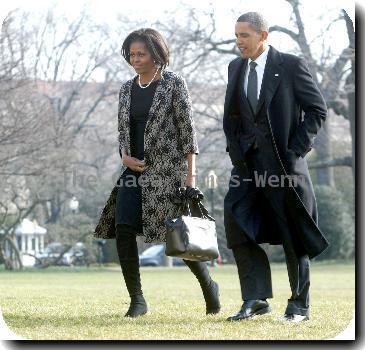Colombia’s presidential race thrown open as high court scuttles any bid by Uribe for 3rd term
By Libardo Cardona, APSaturday, February 27, 2010
Colombia election open as court blocks Uribe run
BOGOTA — Colombia’s presidential race is wide open after a Constitutional Court ruling that blocks a referendum on whether Alvaro Uribe should be allowed to seek a third consecutive term.
The hugely popular Uribe, one of the strongest U.S. allies in South America, had not said he wanted to run again, and he went on national television to say he would respect Friday’s ruling.
“I heed and respect the decision of the honorable Constitutional Court,” Uribe said. “I have one wish: The wish to be able to serve Colombia from whatever trench, under whatever circumstance, until the last day of my life.”
In a 7-2 decision that is not subject to appeal, the high court ruled that a law passed by Congress to set up the referendum was unconstitutional.
Now the jockeying will begin for the May 30 presidential election to succeed Uribe when his term ends Aug. 7.
There are many viable candidates, including Juan Manuel Santos, Uribe’s defense minister during the spectacular July 2008 rescue of rebel hostages Ingrid Betancourt and three U.S military contractors. There is also Uribe’s main leftist nemesis, Sen. Gustavo Petro.
What Colombia lacks is a front-runner because Uribe has, even when there were doubts the Constitutional Court would endorse the re-election referendum, continued to be the single most dominating force in Colombian politics.
The conservative president is highly popular for seriously weakening leftist rebels, although he has also been criticized by human rights activists for allying with politicians who collaborated closely with far-right death squads.
First elected in 2002, the 57-year-old Uribe won re-election four years later after allies in Congress pushed through a law amending the constitution so he could run again.
He had been coy about whether he wanted a third term — expressing concern only that his “democratic security” policy that has seriously cut kidnapping and murder rates be continued by whomever wins the May election.
“The only sentiment I harbor is a sentiment of love for Colombia,” Uribe said in his TV address after the court ruled. “I wish that in the years of life that remain for me I can feel more love for Colombia.”
In announcing the decision after seven hours of deliberations, the Constitutional Court’s president, Mauricio Gonzalez, said justices found a number of irregularities in the passage of the referendum law. He said that taken together, the anomalies amounted to “a grave violation of democratic principles like transparency and voter rights.”
The court objected to, among other things, the fact that the money spent to obtain the signatures required for the referendum law exceeded the legal maximum.
Influential Colombians from leading industrialists to the president of the Inter-American Development Bank, Luis Alberto Moreno, had opposed a third term for Uribe — not because they were unhappy with his tenure, but because they said a third term would hurt democratic stability.
Even the U.S. government, a strong backer of Uribe in his fights with leftist rebels and cocaine traffickers, suggested it was time for him to relinquish power.
During a visit by Uribe to the White House last year, U.S. President Barack Obama politely suggested in front of reporters that two terms was plenty, citing the example of the first president of his country, George Washington.
It would have been contradictory for Washington to embrace a third term for Uribe after criticizing the successful moves by Venezuela’s socialist president and strong U.S. critic, Hugo Chavez, to extend his time in office.
Uribe’s government came under intense criticism by the United Nations and human rights groups late in 2008 over a scandal involving hundreds of extra-judicial killings by soldiers, many of whom killed peasants and then dressed them up as rebels.
The president’s popularity has consistently been about 70 percent throughout his tenure but in recent months dipped as resistance grew to his re-election.
Associated Press Writer Frank Bajak in Port-au-Prince, Haiti, contributed to this report.
Tags: Barack Obama, Bogota, Colombia, Haiti, Latin America And Caribbean, North America, South America, United States

